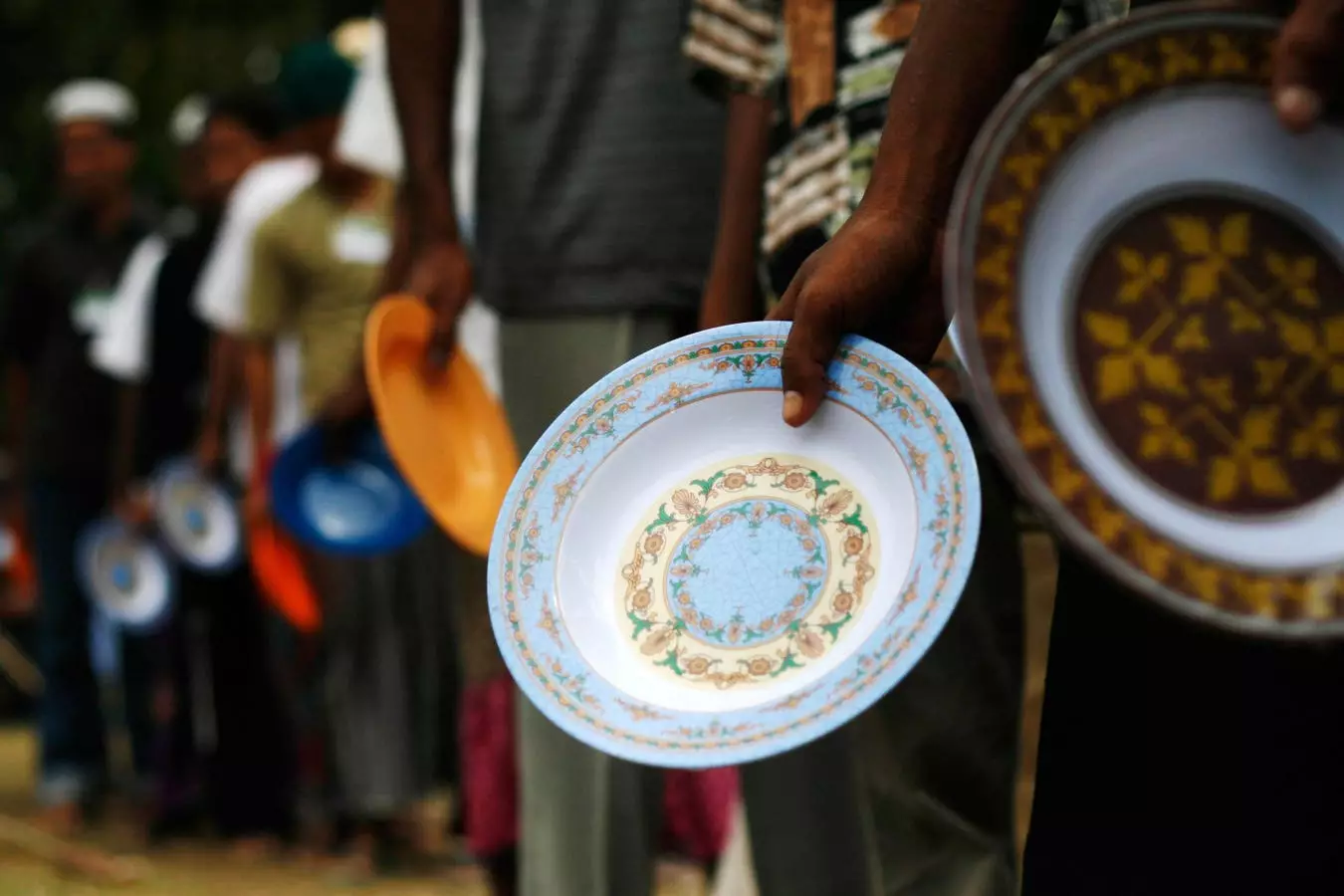As the world inches toward the ambitious 2030 Sustainable Development Goals, the latest SOFI report paints a nuanced picture. It’s a portrait of modest progress shadowed by persistent inequalities and mounting challenges. While some regions manage to inch forward in combating hunger, the overarching narrative reveals a global food system still struggling to meet the needs of the most vulnerable.
The data suggests a slow decline in hunger rates—dropping from 8.7% in 2022 to approximately 8.2% in 2023—yet this change feels insufficient given the scale of the crisis. Over 2.6 billion people, or roughly one in three, still cannot afford a nutritious diet. Such figures are a stark reminder that incremental changes are not enough. When compared to the urgency of the problems at hand, these numbers seem almost insignificant. The global community’s response is lagging behind the rapid pace required to create real change.
A sobering aspect emerges when considering the disparities within this progress. Women—who are often on the frontlines of food production and household management—continue to face the worse outcomes. Despite previous years of narrowing gender gaps in food security, recent data indicates a backslide. Nearly one-third of women aged 15–49 are unable to enjoy diverse, nutritious diets. This regression underscores that, in many areas, efforts to promote gender equality in nutrition are losing ground, further entrenching a cycle of inequality.
Global Inequities: Africa at the Crossroads of Food and Nutrition Challenges
The disparities become most glaring when zooming into different regions. Southeast Asia and South America have seen some improvements, illuminating how targeted policies can make a difference. Conversely, the African continent remains mired in a worsening crisis. The number of Africans who cannot afford healthy diets has surged from roughly 864 million to over 1 billion. Its food insecurity rate exceeds twice the global average, and forecasts suggest that by 2030, the continent will host 60% of the world’s chronically undernourished population.
This stark reality doesn’t just highlight a regional crisis—it demands a reevaluation of how aid, investment, and policy focus are allocated. Africa’s food insecurity isn’t a result of scarcity alone but of systemic barriers—limited access to economic opportunities, unequal land rights, and inadequate infrastructure. The continent’s plight is a testament to the fact that global progress often leaves behind the very populations that need it most.
Reimagining Solutions: From International Frameworks to Local Actions
The report underscores the importance of broad policy reforms—such as data-sharing mechanisms, sustainable trade policies, and increased investments. These suggestions form part of an essential skeleton for systemic change; however, they are not sufficient on their own. Genuine transformation requires a bottom-up approach that recognizes local contexts and empowers communities to lead the charge.
Brazil’s recent achievements offer a compelling blueprint. The nation’s policies—ranging from localized school meal programs sourced from small farmers to expanded social safety nets—demonstrate that political will and targeted social programs can yield extraordinary results. The decline in food insecurity from over 70 million cases in 2022 to under 30 million exemplifies how bold policy decisions can directly impact millions of lives. Brazil’s success reminds us that sustainable solutions often emerge when governments prioritize food as a right and integrate support for smallholders and indigenous communities into their strategies.
In contrast, African policymakers and stakeholders face a different set of obstacles—economic instability, political unrest, and historic inequalities impede progress. To emulate successful models like Brazil’s, African nations need to craft context-sensitive policies that address structural inequalities. This includes guaranteeing land rights, supporting local agriculture, improving access to markets, and investing in social infrastructure. Food security isn’t merely a matter of production but of economic inclusion—ensuring that the most marginalized have the resources and rights to access nourishing food.
The Moral Imperative: Addressing Inequality as the Core of Food Security
The overarching message from recent reports is visceral: the world is witnessing a breakdown of moral accountability. As Emily Farr of Oxfam succinctly states, this isn’t a scarcity issue but one rooted in inequality. The pandemic exposed and exacerbated existing vulnerabilities, but it also revealed the profound moral failure of ignoring social inequities in global food systems.
In my assessment, any serious move toward ending hunger must start with an acknowledgment of this core truth. Conversations about food security cannot be divorced from issues of social justice, gender equality, and economic inclusion. The global community must cease chasing tokenistic measures and instead commit to redistributive policies, fair trade practices, and investments that uplift the most disadvantaged populations.
Addressing these fundamental injustices isn’t mere charity—it is a moral obligation that shapes the security and dignity of our shared humanity. If we fail to recognize food security as a matter of fundamental human rights, any superficial progress will remain hollow and unsustainable.
Genuine change demands bold leadership, unwavering commitment, and a willingness to confront entrenched inequalities head-on. Only then can we hope to turn the tide—transforming the food system from one of disparity into a force for universal empowerment and health.


Leave a Reply